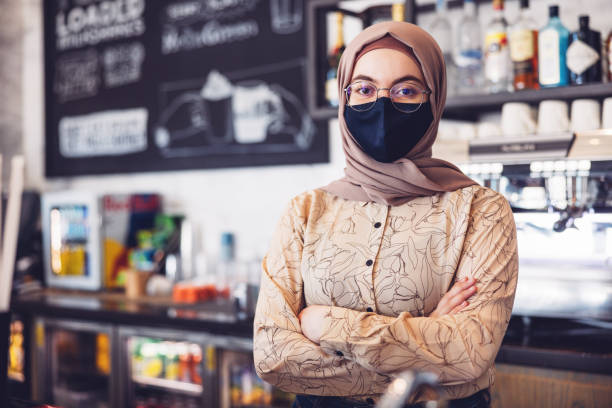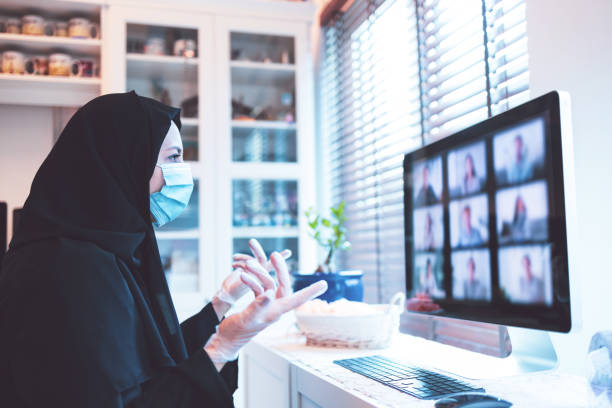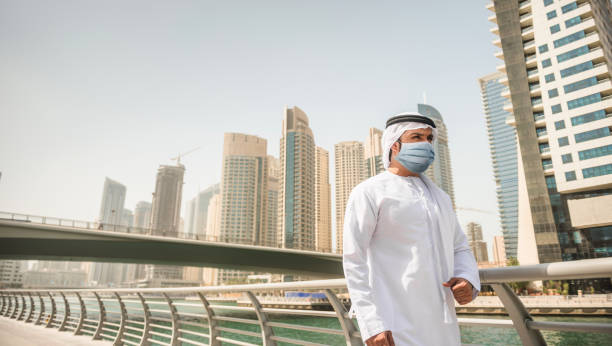As the coronavirus pandemic continues to impact nations globally, the United Arab Emirates (UAE) government has enforced strict quarantine measures for COVID-19 positive cases to curb the spread of the virus. With the health and safety of residents and visitors in mind, these rules are designed to facilitate effective isolation and limit public health risks. The main topic of this article is to elucidate the current quarantine rules in the UAE for those testing positive for COVID-19 and offer valuable insights into adherence for both residents and international travelers.
Current Quarantine Rules in UAE for COVID-19 Positive Patients
As the situation evolves, the UAE government constantly updates the quarantine protocols to reflect the changing landscape of the pandemic. The most recent guidelines indicate that COVID-19 positive individuals must undergo a mandatory quarantine. The typical duration is determined by the healthcare authorities based on the severity of the case and may vary from person to person. Completing the quarantine period is essential, and individuals are only released based on a negative COVID-19 test result and the disappearance of symptoms.
It is imperative to note that the criteria for ending home quarantine involve not having a fever for at least three days without the use of fever-reducing medications, among other health markers. Home isolations follow stringent rules to prevent household transmission, where the infected individual must stay in a separate room and use a separate bathroom if possible.

How to Quarantine Effectively: Tips for UAE Residents
Quarantining at home requires careful preparation and mindfulness to ensure the safety of oneself and others. Here are some steps residents could take to quarantine effectively:
- Designate a ‘sick room’ and separate bathroom for exclusive use by the person infected.
- Stock up on necessary items, such as medications, food supplies, and hygiene products, to minimize the need for outside contact.
Additionally, maintaining mental health is crucial during periods of isolation. Establishing a daily routine, including work or hobbies, and staying connected with friends and family virtually, can help mitigate feelings of loneliness or anxiety.
Quarantine Protocols for Visitors and Tourists in UAE
International travelers need to be acutely aware of the quarantine and entry requirements when planning trips to the UAE. Upon arrival, visitors might have to take COVID-19 tests at the airport, and if tested positive, they must adhere to the prescribed quarantine protocols, which can include staying at designated facilities or implementing home quarantine if the necessary criteria are met.
The entry requirements for tourists stipulate that one must present a negative COVID-19 test, acquired within the stipulated time frame before departure from their origin country. Tourists who do not show documentation confirming a negative test result could face entry restrictions or mandatory testing upon arrival.
Support Systems for Those in Quarantine in UAE
The UAE government and healthcare providers have established a robust support system for those in quarantine. This includes medical care access through telehealth services, allowing patients to consult with doctors without leaving isolation. Additionally, there are community initiatives where volunteers provide assistance with groceries and other necessities to those unable to leave their homes.

Legal Implications of Breaching Quarantine in UAE
Non-compliance with quarantine regulations can lead to severe consequences, including penalties and fines. The UAE government has specified that violating home quarantine orders or rules for designated facilities is a legal offense. Individuals are expected to fully understand and fulfill their legal obligations by following the guidelines set by the authorities meticulously.
Adherence to Public Health Measures: Beyond Quarantine
The journey to eradicate COVID-19 does not end with quarantine. Once individuals have recovered and completed their isolation period, it is still essential to adhere to public health measures such as wearing masks, maintaining social distance, and hand hygiene. Vaccinations have become a cornerstone in the fight against the virus, and staying updated with booster shots reinforces the collective efforts to manage coronavirus cases.
Conclusion
In conclusion, understanding and adhering to the quarantine rules set by the UAE government is of paramount importance for curbing the spread of COVID-19. It is a shared responsibility among residents, visitors, and the governments to ensure the health and safety of communities. Unifying efforts through compliance, vaccinations, and continued caution can lead to a more controlled environment in which the country can operate safely amid the pandemic.

FAQs
Below are the answers to some frequently asked questions regarding the quarantine rules in the UAE for COVID-19 positive cases:
What is the required duration of quarantine for COVID-19 positive individuals in the UAE?
The typical duration set by the UAE health authorities is 14 days; however, this may change based on an individual’s health status and updated guidelines from the government.
Are there different quarantine protocols for residents versus tourists in the UAE?
While the underlying principles of quarantine are similar, tourists may have additional regulations to follow, such as staying in designated facilities if they cannot meet the criteria for home isolation.
Can individuals quarantine at home, or are there designated facilities in the UAE?
Depending on the circumstances of each case, individuals can quarantine at home if the necessary conditions are met. However, designated facilities are available for those who cannot isolate safely in their homes or are visitors without a residence in the UAE.
What are the penalties for not adhering to quarantine rules in the UAE?
The UAE government imposes fines and legal repercussions on anyone found breaching quarantine protocols.
How can someone in quarantine in the UAE access medical support if their symptoms worsen?
The UAE offers telehealth services, which can be accessed from the safety of one’s quarantine location. For more severe cases, emergency medical services are available.
